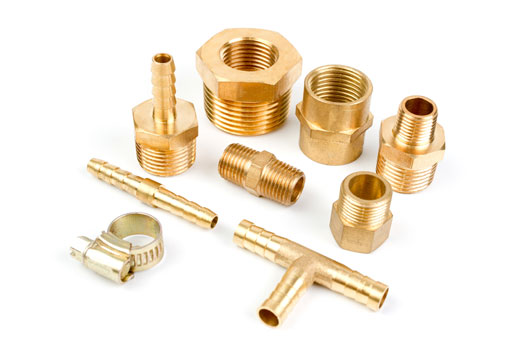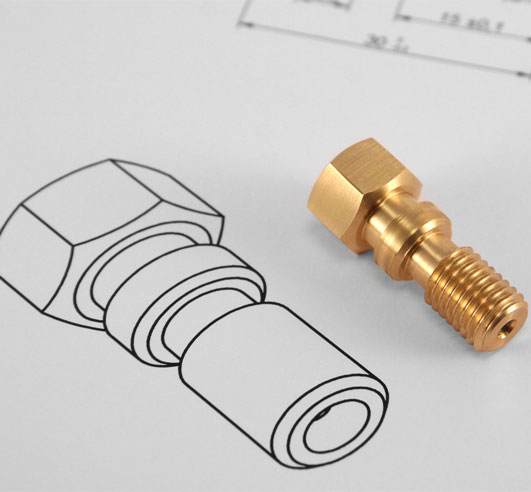The world of precision manufacturing is constantly evolving, and CNC milling plays a significant role in this progression. With a diverse set of materials available for CNC milling, it can become challenging to choose the right material for a specific project or application. Brass, known for its excellent machinability and mechanical properties, is one such material that is extensively used in CNC milling processes. In this blog post, we will explore the intricacies of milling brass parts, discussing various techniques, practical tips, and material selection criteria.
Brass: An Overview
Brass〞a versatile metal alloy〞consists primarily of copper and zinc and often includes other elements such as tin, lead, and aluminum. This alloy exhibits various characteristics that make it an ideal choice for different applications, including its high strength, resistance to corrosion and wear, excellent conductive properties, and cost-effectiveness.
Benefits of CNC Milling Brass
Milling brass components via CNC machines offers a range of benefits, such as:
1. Precision:CNC milling ensures high precision and accuracy in the manufacturing of brass parts.
2. Speed:Computer-aided manufacturing and CAD/CAM software allow rapid design iterations and production of complex geometries with minimal lead times.
3. Consistency:CNC milling offers consistent results, enabling the production of identical brass parts in large batches.
4. Flexibility:The versatility of CNC mills allows for the machining of various brass alloys with diverse characteristics.
Techniques for Effectively Milling Brass Parts
Here are some important techniques to keep in mind while milling brass parts on a CNC machine:
Selecting the Right Brass Alloy
Choosing the appropriate brass alloy is essential, as properties such as machinability, strength, and resistance to corrosion can vary widely between alloys. While some common brass alloys include C36000 (Free Cutting Brass) and C65500 (High Silicon Bronze), consult with a materials specialist to identify the ideal alloy for your specific application.
Optimizing Tooling
The use of sharp, high-quality carbide tools will significantly enhance cutting, reduce tool wear, and minimize the chances of material-related issues. When working with brass, consider using end mills with chip-breaking features or helical flutes, as they can efficiently break chips and evacuate them from the cutting zone.
Adjusting Feed Rates and Speeds
Optimizing cutting parameters such as feed rates and spindle speeds is crucial for achieving top-quality milled brass parts. Brass's high machinability enables it to withstand increased cutting speeds, facilitating shorter cycle times and improved efficiency. However, it is essential to strike a balance to prevent overheating or excessive tool wear.
Lubrication and Coolant Management
While brass doesn't necessarily require coolant during milling, applying a suitable cutting oil or minimal quantity lubrication (MQL) can extend tool life, prevent excessive heat, and ensure a smooth cutting process. If you opt for using a coolant, ensure it is brass-compatible to prevent staining or corrosion.
Expert Tips for CNC Brass Parts Milling
Keep the following tips in mind when milling brass parts on a CNC machine:
1. Clamping Force:Be cautious when applying clamping force, as excessive force could potentially deform or damage the brass workpiece.
2. Chip Clearance:Regularly remove chips from the machine to prevent them from re-entering the cutting zone or causing a buildup of heat.
3. Deep Pocket Milling:Utilize long end mills and minimize the radial engagement when milling deep pockets to avoid tool breakages or deflections.
4. In-house Testing:Perform regular quality control testing, such as hardness and tensile tests, to keep track of material quality and consistency during the milling process.
By considering these techniques and tips, CNC brass parts milling can yield exceptional results, meeting your project demands with ease. When working with brass, always prioritize selecting the ideal alloy, optimizing cutting tools and parameters, and managing chips and lubrication effectively. Whether you're producing complex components for the aerospace, automotive, or medical industries, brass's unique properties, combined with the precision and efficiency of CNC milling, can open the door to endless possibilities.
cnc brass parts milling processing







